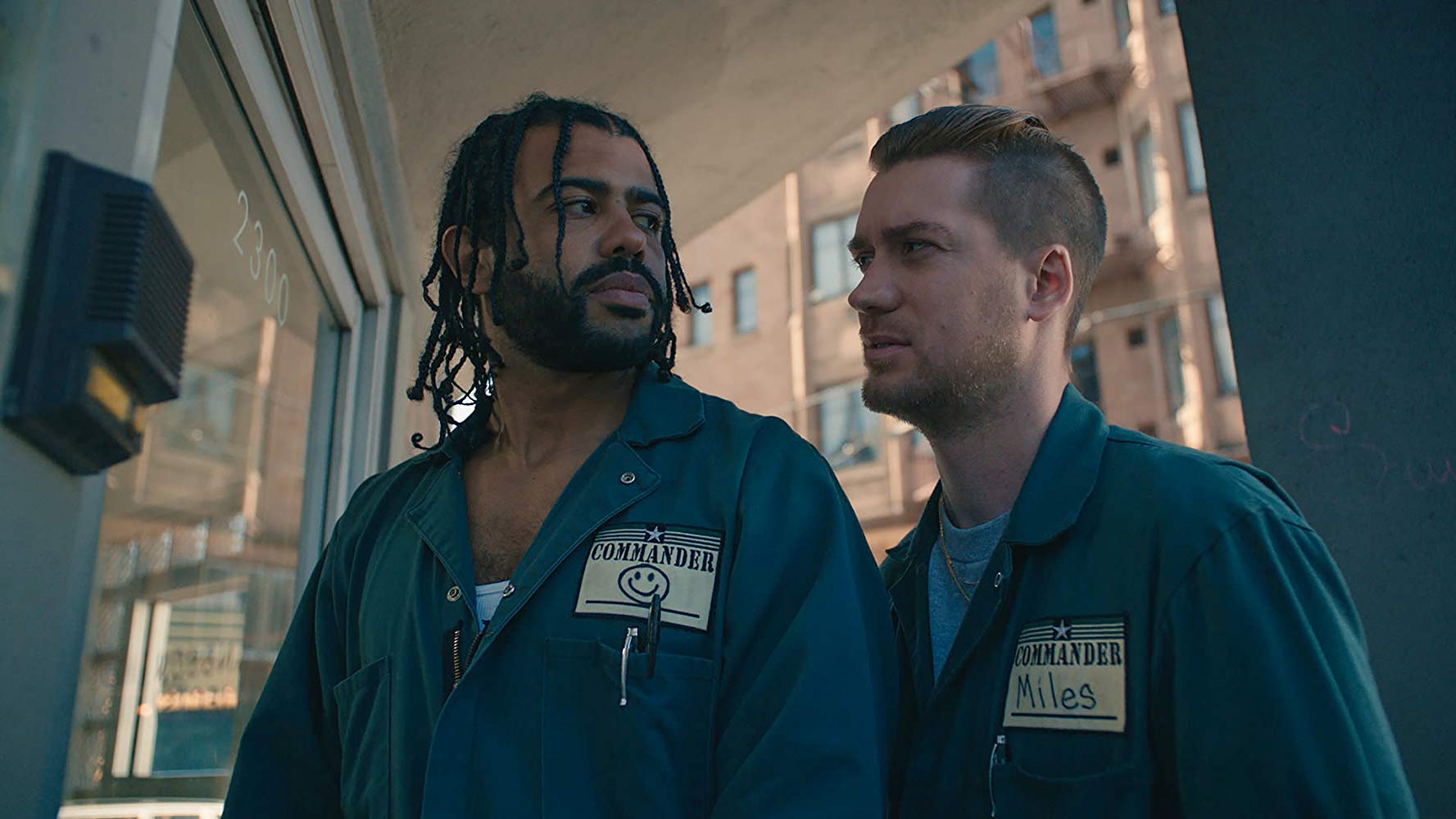In a mid-1990s interview, Tupac Shakur described how the rage in his music reflected a lack of progress on equality and civil rights issues through the years. Specifically, Shakur suggested the time to be polite had passed.
“We was asking with the Panthers. We was asking with them, the Civil Rights Movement. We was asking,” Shakur said in the posthumous documentary Tupac: Resurrection. “Those people that asked are dead and in jail. So now what do you think we’re gonna do? Ask?”
So while Blindspotting is a love letter from stars Daveed Diggs and Rafael Casal to their hometown of Oakland, California, it’s also a provocative satire about gun violence, racial profiling, police brutality, gentrification, and other themes that cross geographical and cultural boundaries. Taking a cue from Tupac, it’s not subtle.
“That’s where we’re at. We’re not artfully pointing at a social issue that maybe we should think about,” Casal said during the recent Dallas International Film Festival. “We did that and it didn’t work.”
The film provides a contemporary look at the blue-collar city through the eyes of two goofball stoners. Collin (Diggs) is three days away from finishing his probation and starting a new life. His primary obstacle to that goal seems to be the impulsive and reckless behavior of Miles (Casal), his confidant and co-worker at a moving company.
While hustling home to meet his curfew, the somewhat timid Collin witnesses a violent act that prompts him to ponder his own safety while raising his social awareness to the level of potential vengeance. At the same time, Miles sees his anger and aggressiveness spiral out of control as a reaction to changes in the neighborhood, threatening his relationships both to Collin and his family.
“The characters are compilations of people we know and grew up with. None of them are really us, but their relationship parallels ours in a lot of ways,” Diggs said. “We thought these character collages would be the best way to tell the story of this rapidly gentrifying Oakland.”
Diggs and Casal are lifelong best friends who started writing the film more than a decade ago, well before Diggs won a Tony Award for his performance in Hamilton on Broadway and Casal gained notoriety in the world of spoken-word poetry. Every time they attempted to make Blindspotting, there were issues with timing or finances. But their perseverance eventually paid off.
“We were doing so many other things, but this story kept sticking around,” Diggs said. “It stayed relevant, which is a little bit upsetting in some ways. We wanted to tell this story despite the huge depth of other ideas we had going on.”
Their final rewrite of the script evolved the conversation about police violence, in particular. Diggs and Casal scaled back their focus on widespread protests and outrage in favor of a more character-driven examination of the perceived value of a black man’s life.
“We’re unable to play this game anymore. It’s not about dancing around. We realize how the expression of truth actually becomes high-stakes,” Diggs said. “We didn’t want to have Collin be perfect. We see that he’s made mistakes. We wanted to see if we could get a room full of people to root for him, which doesn’t seem to be happening every time somebody gets shot [in real life]. They’re looking for reasons that it’s OK that this person died. I don’t know if it’s to relieve responsibility or not have to be upset again, or just not deal with it today. We’re just trying to humanize the people who don’t have a chance to fight for themselves.”
Meanwhile, the film depicts Oakland as a city with a burgeoning homeless population combined with an influx of suburban spillovers from San Francisco and Silicon Valley who are changing the identity of the area.
“There’s a memory we have of Oakland that’s getting further and further away from the city we visit when we go home,” Casal said. “We just wanted to time-capsule it to a certain degree, so we can watch the movie to remember what we experienced. In the film, there are old problems and new problems. I hope the film shows how Collin and Miles feel about their identities as Oaklanders. Our own relationship with the city is one of sadness at this point, kind of like watching a friend dying.”
Diggs is more optimistic, claiming that while cultural shifts might make Oakland natives feel marginalized, their heritage can still be preserved.
“We’ve got to keep making stories,” Diggs said. “There’s a lot of old Oakland still there fighting to be heard and to be seen. And we need to listen, because there are stories here that are valuable and entertaining and will make money. Every city is going through the same thing.”





